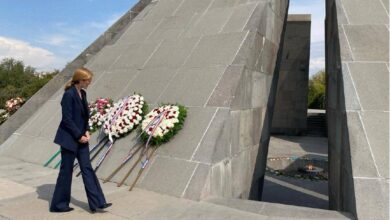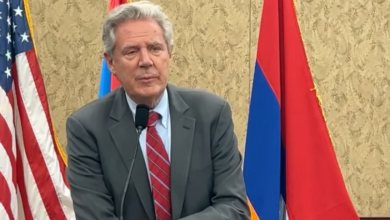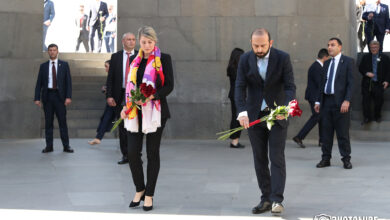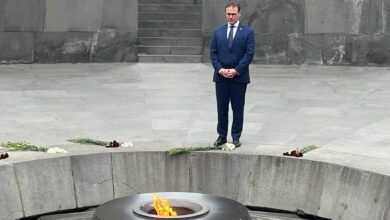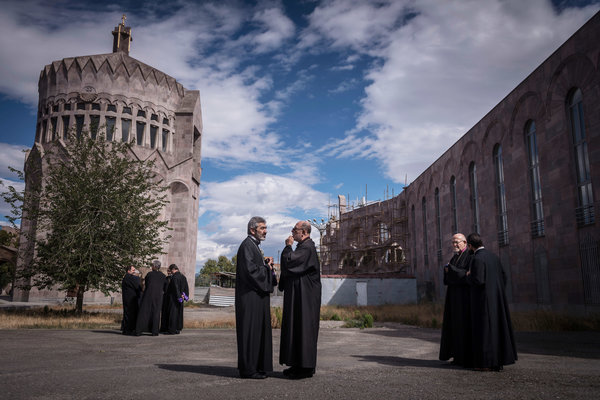
“In this ancient city, tucked in a valley that has witnessed the rise and fall of empires, King Tiridates III converted to Christianity and declared Armenia to be the world’s first Christian state. The year was 301, more than a decade before the Emperor Constantine put Rome on a similar path,” The New York Times writes about the Armenian city of Etchmiadzin, the religions center of all Armenians.
“Since then, the Armenian Apostolic Church, which still has its main cathedral here, has survived conquest and dispersion, genocide and government-imposed atheism during the years Armenia was part of the Soviet Union. It also endured centuries of internal rancor, including a split in 1441 that led to the establishment of a rival leadership now based in Lebanon,” the article reads.
As church leaders gathered in Etchmiadzin last week for a rare bishops’ conference, they considered a set of challenges: entrenched secularism at home, assimilation of followers in the large Armenian Diaspora abroad and general disaffection with organized religion.
His Holiness Aram I, the Catholicos of the Great House of Cilicia, acknowledged that he claimed the same basic title as Catholicos Karekin II, the church leader based in Echmiadzin, who also has the added designation of supreme patriarch of all Armenians. Still, Aram I denied any fissure.
“We don’t have any division in the Armenian church,” he said. “We are one church. We are one people. We are one nation. We are one mission. We have two Catholicoi, and we are rich — this is an expression of the richness of the church,” he told the New York Times.
The Synod discussed a wide range of issues: creating universal practices for baptisms and confirmations, discussing the canonization of victims of the 1915 Armenian genocide in recognition of the 100th anniversary, and planning another conference next year.
Archbishop Aris Shirvanian, the director of ecumenical and foreign relations at the Armenian Apostolic Patriarchate of Jerusalem, said that reaching an agreement to canonize victims — the first saints designated by the church since the 1500s — was a top priority.
“We, the bishops and archbishops living today, are descendants of Armenian genocide,” Archbishop Shirvanian said. “All of us are survivors. That’s the driving spirit behind this meeting.”




